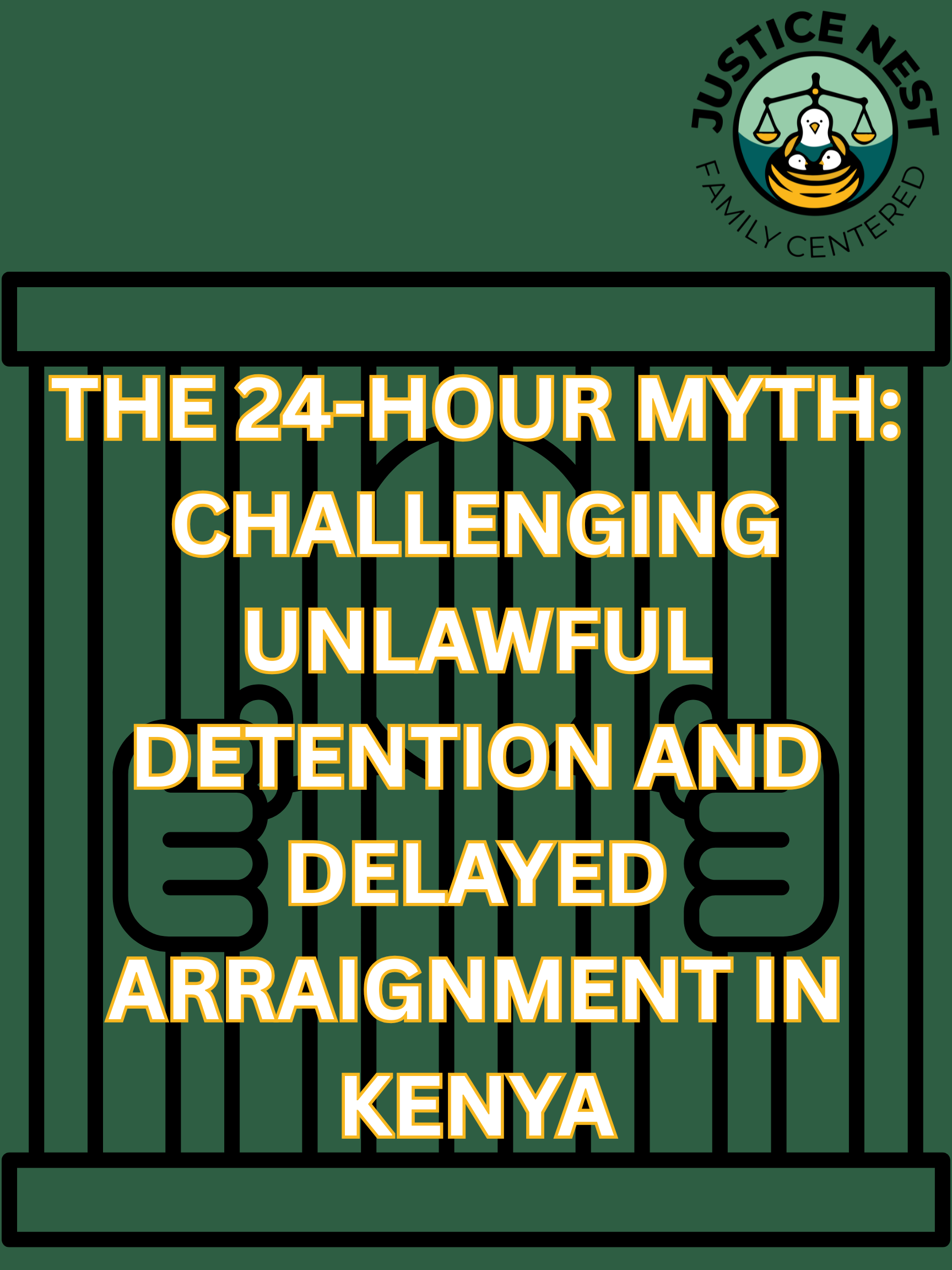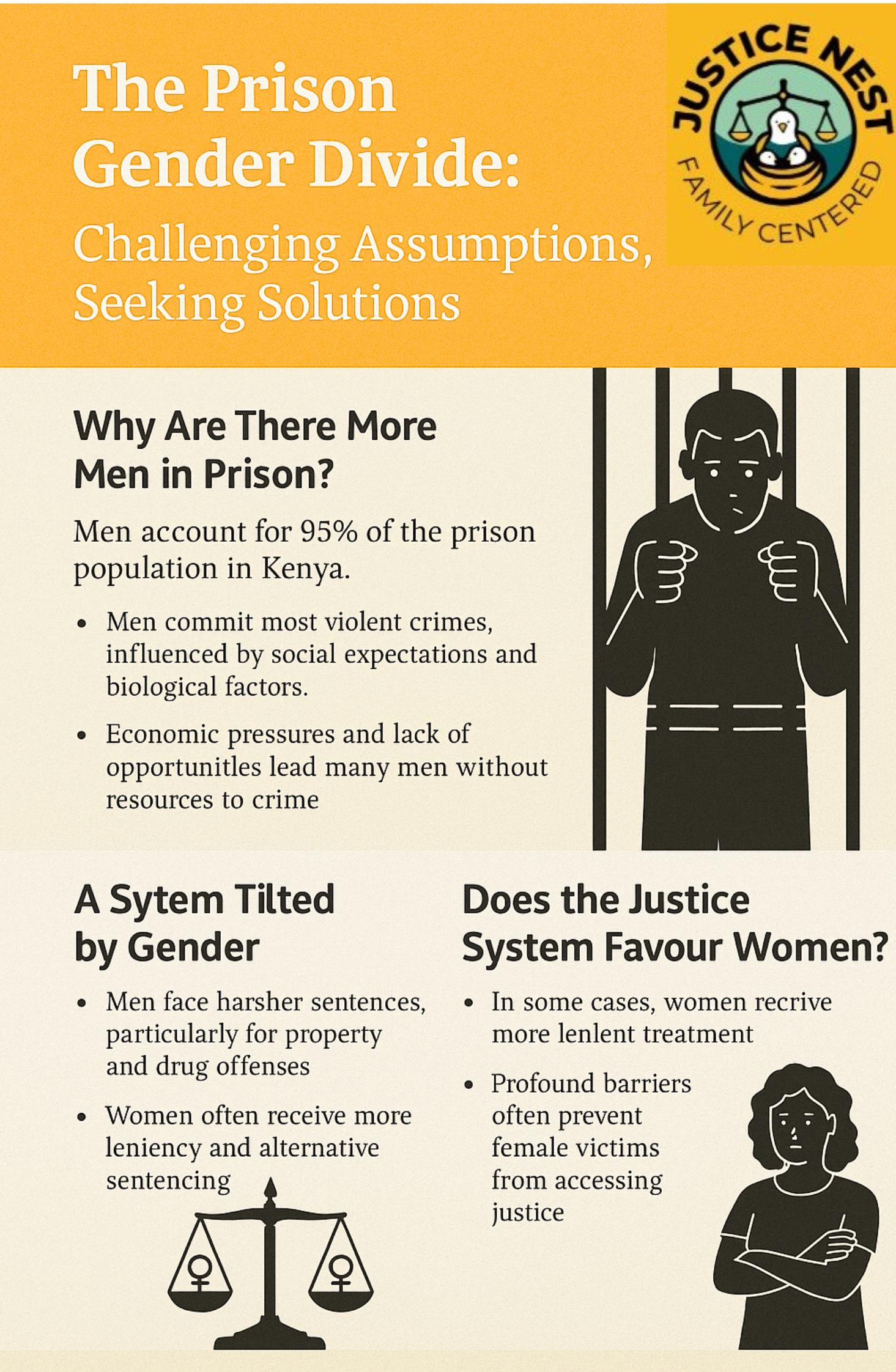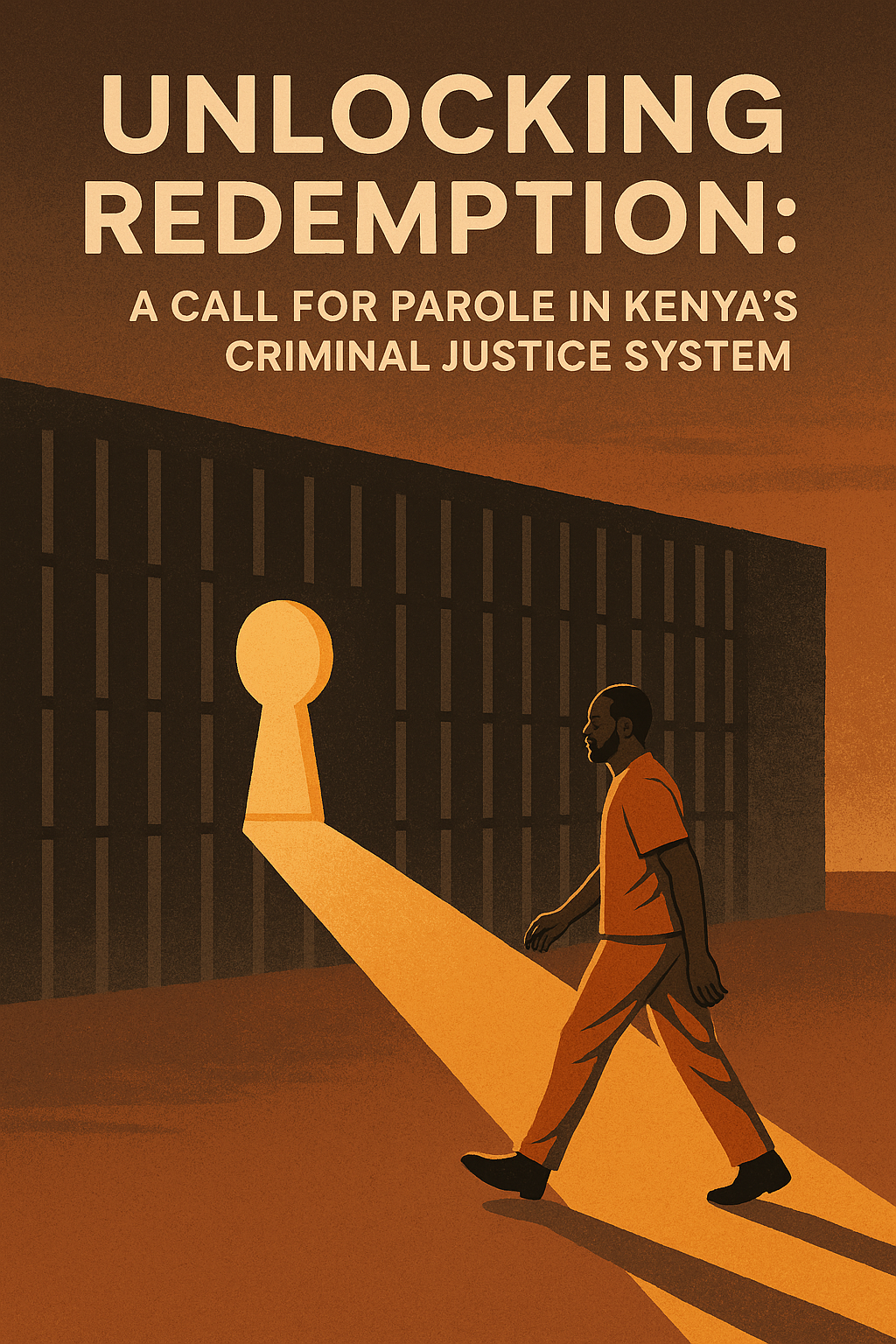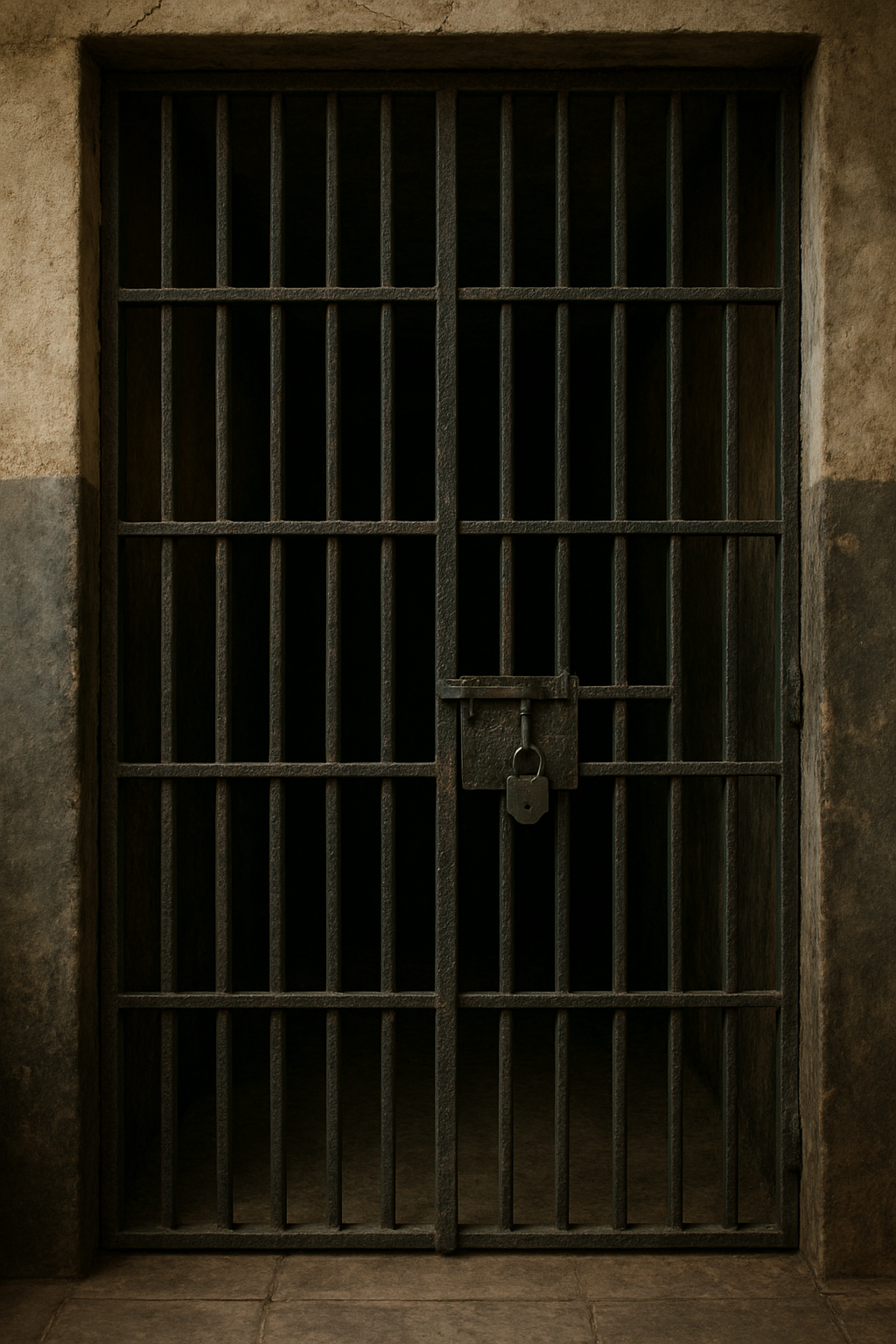Stories

August, 2025
The 24-Hour Myth: Challenging Unlawful Detention and Delayed Arraignment in Kenya
‘A Constitution is not just a legal document. It is a vehicle for life, and its spirit must live in the institutions that enforce it.’-Emeritus Chief Justice Willy Mutunga
The right to liberty is a foundational guarantee under the Constitution of Kenya, 2010. Among the protections that safeguard this right is Article 49(1)(f), which provides that an arrested person ‘shall be brought before a court as soon as reasonably possible, but not later than 24 hours after being arrested.’
Yet, in practice, this provision is frequently misunderstood and misapplied. The common assumption by arresting authorities is that the Constitution grants them an automatic 24-hour window to detain a suspect before arraignment regardless of circumstances. This interpretation is not only inaccurate, but it also undermines the very spirit of Article 49 and the broader Bill of Rights.
The phrasing of Article 49(1)(f) is deliberate; the requirement to bring a person before a court as soon as reasonably possible precedes the upper limit of 24 hours. This clearly indicates that the obligation to arraign is immediate, with the 24-hour mark serving as a hard outer limit, not a default grace period.
For example, if an individual is arrested at 6:00 a.m. on a Friday, and court is in session that day, then arraignment should ideally happen that same day. Any delay must be justified, and the burden to explain the circumstances falls on the arresting agency. Such justification must meet the standards under Article 24, the limitation of a right must be reasonable and justifiable in an open and democratic society based on human dignity, equality, and freedom.
There has been an alarming increase in cases where suspects are held in custody for more than 24 hours sometimes even beyond 72 hours without being brought to court or without any formal application for extended detention. Such detentions are patently unlawful and violate Articles 49, 25(a), and 29 of the Constitution, which protect personal liberty and prohibit arbitrary detention.
Furthermore, criminal charges that arise from such unlawful detentions risk being viewed through the doctrine of the ‘fruits of a poisonous tree.’ This principle, well established in rights-based jurisprudence, holds that evidence obtained through unconstitutional means such as prolonged, unjustified detention may be tainted and inadmissible. Where an arrest is unlawful, any prosecution founded upon it is placed on shaky ground.
The Constitution is unambiguous in its declaration under Article 50(2)(a) that every accused person has the right to be presumed innocent until the contrary is proved. This presumption remains fully intact at every stage of the criminal process, including arrest and pre-trial detention. The mere fact that one is a suspect or accused person does not extinguish their constitutional rights.
Indeed, Article 20(1) affirms that the Bill of Rights applies to all law and binds all State organs and all persons. Therefore, any treatment of arrested persons must be consistent with constitutional norms. The Constitution does not create a two-tiered standard of rights one for the accused and another for the free.
Some may argue that arrests made after the lapse of 24 hours from a known offense, or detention continuing beyond that threshold, are exceptions especially in complex investigations. However, this view is misguided.
Article 49(1)(f) does not contain any exception clause. There is no implied constitutional permission to delay arraignment where the court is available and the logistical means exist. The Supreme Court has repeatedly emphasized the need for purposive interpretation of the Constitution: interpreting its provisions in a manner that promotes its values, objects, and principles not undermines them.
The Constitution, as the Supreme Court has affirmed, does not contradict itself. It is a coherent document meant to be read holistically. Therefore, the principles under Article 159(2)(d) and (e) that justice shall be administered without undue regard to procedural technicalities and the purpose and principles of this Constitution shall be protected and promoted must guide judicial officers when considering arraignment-related violations.
Delays in arraignment are not procedural technicalities. They are substantive constitutional breaches that strike at the heart of liberty and due process.
Defence counsel who raise delayed arraignment concerns at the Magistrates’ Court often encounter dismissive responses. It is common to hear that these are “constitutional issues” beyond the court's jurisdiction and should be ventilated through a High Court petition. This position, while cautious, is neither necessary nor constructive.
Magistrates and prosecutors are constitutional actors. Both have taken oaths to uphold, respect, and protect the Constitution. There is nothing in law barring a magistrate from addressing an obvious constitutional violation where the facts are uncontested, especially when such violations occur under their very jurisdiction during plea taking.
Insisting that every suspect unlawfully held must file a constitutional petition at the High Court is not only burdensome, it is unjust. It places the cost of seeking redress on the shoulders of already disadvantaged individuals and promotes inefficiency within the justice system.
If every such instance were challenged through a formal petition, the courts would be flooded with constitutional claims, leading to severe backlogs and system strain. More fundamentally, justice would be delayed for many who cannot afford counsel or navigate complex constitutional procedures.
To ensure respect for the Constitution without overwhelming the judiciary or leaving suspects without remedy, the following measures should be adopted:
1. Proactive Constitutional Enforcement by Magistrates
Magistrates should take a purposive approach to the law and inquire into any violation of Article 49(1)(f) during arraignment. This aligns with Article 159 and enhances public confidence in the judiciary.
2. Remedies Upon Unlawful Detention
Where unlawful detention is established:
- The court should record the violation on the official record.
- Issue reduced bail or bond to reflect the infringement.
- Dismiss trivial charges where appropriate as a sanction against abuse of process.
Refer the matter to the ODPP or IPOA for administrative action against offending officers.
3.Judicial and Prosecutorial Training
Institutions like the National Police College and the National Criminal Investigations Academy should integrate modules on rights-based policing and constitutional arraignment obligations.
4.Statutory and Policy Reforms
The Chief Justice and the NCAJ should issue Practice Directions guiding courts on how to respond to delays in arraignment, while Parliament may consider refining the Criminal Procedure Code to reinforce Article 49 protections.
5.Mandatory Justification for Delay
Police officers must document and present reasons for any delay beyond ‘as soon as reasonably possible,’ and such justifications must be open to judicial scrutiny at arraignment.
Article 49(1)(f) is not an administrative suggestion; it is a constitutional command. It reflects Kenya’s break from a colonial legacy of arbitrary detention and affirms the dignity of every person. Arraignment delays are not minor infringements they are serious violations of liberty that require judicial and institutional correction.
The Constitution does not contradict itself. It forms a seamless fabric of values: human dignity, accountability, justice, and the rule of law. Our institutions must live up to these values not through procedural rigidity, but through substantive fidelity to the spirit of the law.
Wesley Waku, Legal Aid Advocate, Justice Nest











